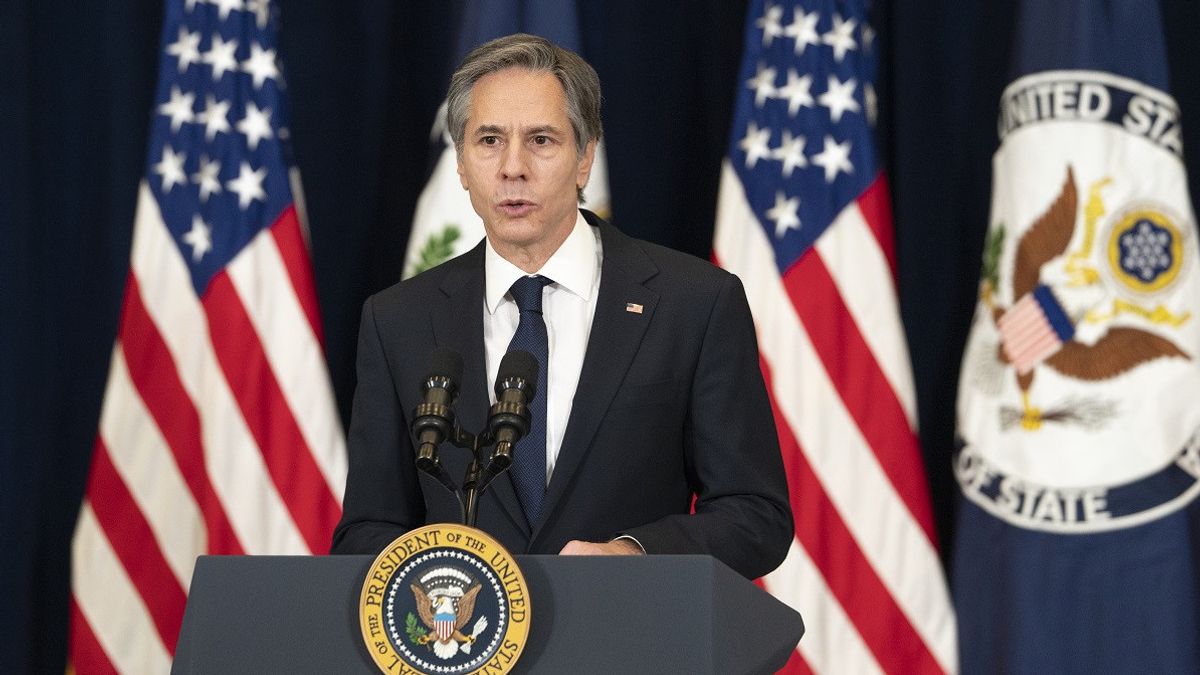JAKARTA - US Secretary of State Antony Blinken called France an important partner in the Indo-Pacific, comments that appeared aimed at calming French anger after the US, Australia and Britain reached an agreement to supply Australia with submarines.
The three countries said on Wednesday they would build a security partnership for the Indo-Pacific, or the AUKUS alliance, which would include helping Australia acquire US nuclear-powered submarines, resulting in the collapse of the US$40 billion French-designed submarine deal.
France reacted angrily to the loss of the deal, calling it a 'stab in the back', following strong criticism from French Foreign Minister Jean-Yves Le Drian.
Speaking at a news conference following a meeting between the US and Australian Foreign and Defense Ministers in Washington, Foreign Minister Blinken said Washington wanted to find every opportunity to deepen transatlantic cooperation in the Indo-Pacific, with France being essential in doing so.
"We work very closely with France on many shared priorities in the Indo-Pacific, but also outside the world. We will continue to do so. We place a fundamental value in that relationship, on that partnership," Foreign Minister Blinken said, citing Reuters on Friday, September 17. .
He added that US officials had been in touch with their French counterparts in the last 24-48 hours to discuss the deal, including before the announcement.
A French official who spoke on condition of anonymity said the Americans did not tell them until French officials saw media reports about the deal and contacted their US counterparts with questions.
To note, in 2016 Australia selected French shipbuilder Naval Group to build a new fleet of US$40 billion submarines, to replace the more than two decades old Collins.
France accused US President Joe Biden of stabbing him in the back and acting like his predecessor, Donald Trump, after Paris was removed from a lucrative defense deal it had signed with Australia for submarines.
"This brutal, one-sided and unexpected decision reminds me of what Trump used to do. I am angry and bitter. This was not done between allies," French Foreign Minister Jean-Yves Le Drian told radio franceinfo.
Two weeks ago, Australia's Minister of Defense and Foreign Affairs had reaffirmed the deal to France. Meanwhile, French President Emmanuel Macron hailed decades of cooperation ahead when he hosted Australian Prime Minister Scott Morrison in June.
Meanwhile, the United States and its allies are looking for ways to counter China's growing power and influence, particularly its military build-up, pressure on Taiwan and deployments in the contested South China Sea.
The White House on Thursday defended the US decision, rejecting criticism from China and France over the deal.
"We are not seeking conflict with China," White House spokeswoman Jen Psaki told reporters.
China says the United States, Australia and Britain are seriously undermining regional peace and stability, along with providing nuclear submarine technology to Kangaroo Country.
"In our view, it's about security in the Indo-Pacific," Psaki said. He said he would leave it to Australia on why it would seek technology from the United States.
"We don't see this from our end as a regional divide. We see this as an area and a security issue that we want to work on together," Psaki said.
The English, Chinese, Japanese, Arabic, and French versions are automatically generated by the AI. So there may still be inaccuracies in translating, please always see Indonesian as our main language. (system supported by DigitalSiber.id)










